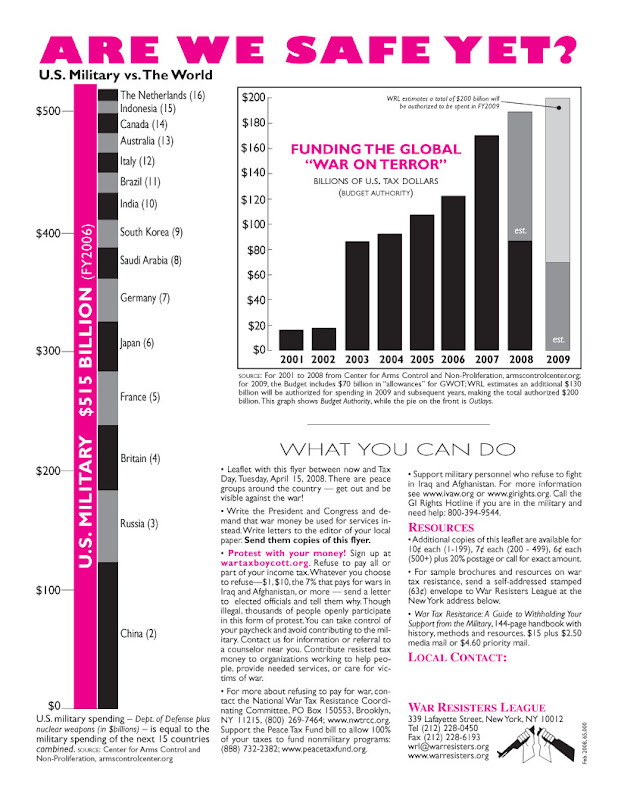
Earlier this month I attended a great performance at the Washington Center for Performing Arts; it was a stage adaptation of Orwell's 1984.
I am glad that I was able to attend this excellent
rendition of Orwell's prophetic fantasy novel,
1984. Winston and Big Brother came alive at the Washington Center for Performing Arts in downtown Olympia. Members of the Los Angeles based
Actors' Gang re-enacted the torturous journey of a 39 year old dissident within the absolute totalitarian society of Orwell's
1984. The book, where "War is Peace," "Freedom is Slavery," and "Ignorance is Strenth", and
2+2=5 is so apt and relevant to our current society. The prospect of perpetual war not only looms starkly upon our horizon; it has actually become our reality. Reading the book is great, but seeing the Actors' Gang's portrayal of the two-minute hate was fantastic. It's too bad if you missed it. Although the performance was well worth the ticket price, it's too bad that more seats weren't made available at a more affordable rate; $30 for the cheap seats seems like a lot, especially for a performance like 1984, which bears such striking relevance for those who suffer from chronic economic depression (as well as for those who are simply unable to afford it).
Full text of Orwell's 1984from the book:
"The primary aim of modern warfare (in accordance with the principles of doublethink, this aim is simultaneously recognized and not recognized by the directing brains of the Inner Party) is to use up the products of the machine without raising the general standard of living. Ever since the end of the nineteenth century, the problem of what to do with the surplus of consumption goods has been latent in industrial society...
"...it was also clear that an all-round increase in wealth threatened the destruction — indeed, in some sense was the destruction — of a hierarchical society. In a world in which everyone worked short hours, had enough to eat, lived in a house with a bathroom and a refrigerator, and possessed a motor-car or even an aeroplane, the most obvious and perhaps the most important form of inequality would already have disappeared. If it once became general, wealth would confer no distinction. It was possible, no doubt, to imagine a society in which wealth, in the sense of personal possessions and luxuries, should be evenly distributed, while power remained in the hands of a small privileged caste. But in practice such a society could not long remain stable. For if leisure and security were enjoyed by all alike, the great mass of human beings who are normally stupefied by poverty would become literate and would learn to think for themselves; and when once they had done this, they would sooner or later realize that the privileged minority had no function, and they would sweep it away. In the long run, a hierarchical society was only possible on a basis of poverty and ignorance...
"...Nor was it a satisfactory solution to keep the masses in poverty by restricting the output of goods. This happened to a great extent during the final phase of capitalism, roughly between 1920 and 1940. The economy of many countries was allowed to stagnate, land went out of cultivation, capital equipment was not added to, great blocks of the population were prevented from working and kept half alive by State charity. But this, too, entailed military weakness, and since the privations it inflicted were obviously unnecessary, it made opposition inevitable. The problem was how to keep the wheels of industry turning without increasing the real wealth of the world. Goods must be produced, but they must not be distributed. And in practice the only way of achieving this was by continuous warfare.
"The essential act of war is destruction, not necessarily of human lives, but of the products of human labour. War is a way of shattering to pieces, or pouring into the stratosphere, or sinking in the depths of the sea, materials which might otherwise be used to make the masses too comfortable, and hence, in the long run, too intelligent. Even when weapons of war are not actually destroyed, their manufacture is still a convenient way of expending labour power without producing anything that can be consumed. A Floating Fortress, for example, has locked up in it the labour that would build several hundred cargo-ships. Ultimately it is scrapped as obsolete, never having brought any material benefit to anybody, and with further enormous labours another Floating Fortress is built. In principle the war effort is always so planned as to eat up any surplus that might exist after meeting the bare needs of the population..."
It's a great book, George Orwell's
1984.
These quotes are from the Actors' Gang program (
The Actors' Gang 1984 Program [pdf]):
All the war-propaganda, all the screaming
and lies and hatred, comes invariably
from people who are not fighting.
~ George Orwell
Every war when it comes, or before it
comes, is represented not as a war but as
an act of self-defense against a homicidal
maniac.
~ George Orwell
The first casualty when war comes is
truth.
~ Hiram Johnson
In a time of universal deceit - telling the
truth is a revolutionary act.
~ George Orwell
The very concept of objective truth is
fading out of the world. Lies will pass
into history.
~ George Orwell
All war is deception.
~ Sun Tzu
War against a foreign country only
happens when the moneyed classes
think they are going to profit from it.
~ George Orwell
The most tyrannical governments are
those which make crimes of opinions, for
everyone has an inalienable right over his
thoughts-- nay, such a state of things
leads to the rule of popular passion.
~ Benedictus de Spinoza, from
Theological-Political Treatise
War is a way of shattering to pieces...
materials which might otherwise be used
to make the masses... too intelligent.
~ George Orwell



